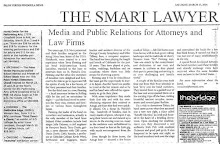Last year I listened to a very well respected journalist give a brief talk over coffee and bagels.
He told us of the realities of a shrinking media world. First: drastically less resources. Staff cuts, shrinking resources, new challenges with the emerging Internet-based communication nexus. All in all the story was grim: twice as much work for half as many journalists with half the budget.
And even more work to do. Website-based stories, for examples, were a new cross to bear. According to this journalist he and his colleagues had to write stories at least twice. One old fashioned journalistic, pyramid-shaped, facts-up-top-followed-by-decreasingly-significant-details story for the world of dead trees [newspapers]; another much briefer version of the story crafted in a different fashion for the short-attention-span world of the Internet. Two sets of rules. Two sets of standards and expectations. For each story.
This was before the recent explosion in media interfaces with Facebook and Twitter and other social media. More versions of each breaking story....
Keep this in mind. This coffee and bagel discussion regarding the woeful examples given were, prior to the current economic downturn/Great Depression/what have you.
Fast forward to now. I just read about fifteen minutes ago that the advertising industry [paymaster to the world of media] eliminated another 20,000 jobs just in December 08. Doesn't take a genius to figure out what that means for our friends the journalists.
Even less money. Even fewer jobs. Even more work trying to bail water from what is left of the world of old media.
Bad times for all. But bad times always spell opportunity for people paying attention.
A dirty little secret in the world of journalism is that a good portion of what passes for "news" these days is, shall we say, outsourced. Some of the footage you see on "News at 6" is canned video produced by some industry or interest group. Much of what you read in print is borrowed from press releases. Often they are printed almost verbatim.
Why is this? Because the most difficult, time-consuming and resource intensive aspect of journalism is what we used to call "digging up a story." Research. Background interviews. More research. Fact checking. Maybe a bit of old fashion gumshoe action down at the courthouse or snapping photos at the polluted river or wherever. That stuff takes time. Lots of time.
How much easier to fill airtime and column inches with a nice, innocuous story based on the video clip conveniently sent in by some special interest? Or just copying and pasting most of a press release emailed in by, well, by someone like me?
Question: how do they fill twice the time or space with half the staff? Answer: by using material prepared by someone else.
And that someone else could be you.
If you have a few dollars to throw around and some know-how youcould be the one producing that slick video for your local news station.
Even if you don't have those sorts of resources you could still put together a very nice news release regarding your firm, client or a particular verdict. Do it right and your local community paper might just print it as written. Done with enough polish and it might end up on the pages of one of those big, fancy, big city newspapers known by their initials or a nickname. Happens all the time. Include a nice professional quality photo [leave the camera phone in the car, please] and you increase your chances of success.
The crisis in the world of media is a golden opportunity for you if you are willing to step in the provide a quality story crafted for a particular media outlet.
Your reputation is your most valuable asset
Subscribe to:
Post Comments (Atom)







No comments:
Post a Comment